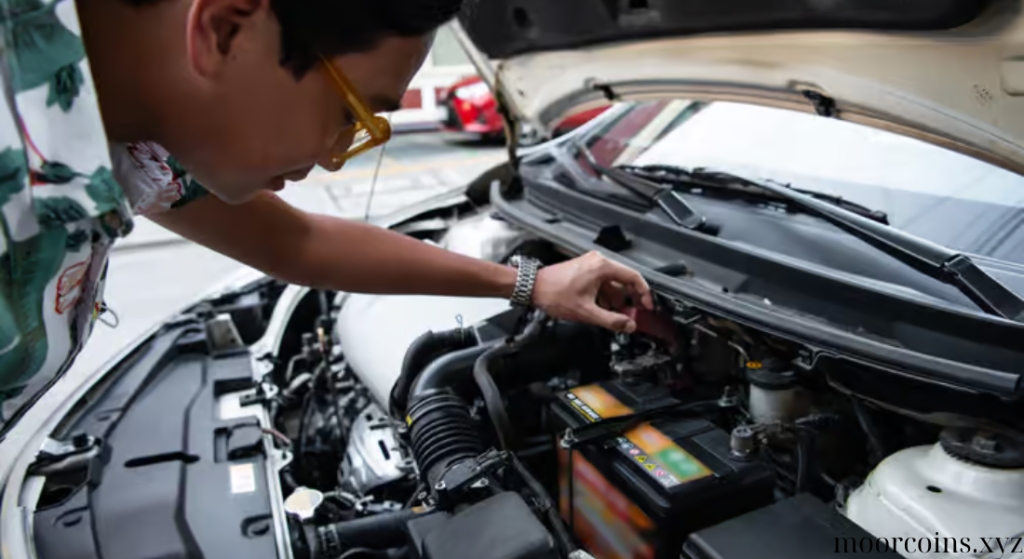Your car battery is essential for keeping your vehicle in good working order, powering everything from the ignition to the electronics. However, car batteries have a limited lifespan, typically lasting 3 to 5 years. Recognizing the signs of a failing battery can help you avoid unexpected breakdowns and keep your vehicle performing reliably. Here’s a guide to the key indicators that signal it’s time to replace your car battery and ensure effective maintenance.
Table of Contents
ToggleKey Highlights
- Why Regular Battery Maintenance Is Important: Ensures dependable performance and prevents breakdowns.
- Top Indicators of a Weak Battery: Slow engine start, dim lights, and more.
- Factors That Shorten Battery Life: Climate, driving habits, and quality of the battery.
- Tips for Extending Battery Life: Simple maintenance practices for longevity.
- How to Choose a Replacement Battery: Essential considerations for selecting a new battery.
1. Why Regular Battery Maintenance Is Important
Your car battery plays a crucial role in ensuring your vehicle runs smoothly. A failing battery can cause various issues, from trouble starting to complete system failure. Regular battery checks and prompt replacements prevent these problems, providing consistent and reliable performance.
- Reliable Ignition: A healthy battery ensures your car starts effortlessly, reducing the risk of getting stranded.
- Consistent Power Supply: A strong battery powers lights, electronics, and safety systems efficiently.
- Protecting Other Components: A weak battery can strain other parts like the alternator and starter, potentially leading to more costly repairs.
2. Top Indicators of a Weak or Failing Battery
A battery rarely fails without warning. Recognizing these common signs can help you replace your battery before it becomes a problem.
Slow Engine Crank
A slow engine crank is one of the first signs of a weak battery. If your engine takes longer than usual to start or sounds sluggish, it’s often due to a loss of power in the battery.
- What It Means: Insufficient battery power to start the engine efficiently.
- Action Needed: If this happens frequently, it’s likely time for a new battery.
Dim or Flickering Headlights
Dimming or flickering headlights, or issues with other electrical components, are signs that your battery may be struggling to provide consistent power. This can make driving at night particularly dangerous if left unchecked.
- What It Means: The battery can’t supply steady voltage to electronics.
- Action Needed: Frequent dimming of lights or malfunctioning electronics indicate the need for battery replacement.
Dashboard Warning Light
Most vehicles feature a battery or charging system warning light. If this light turns on, it could mean your battery is losing its charge or that there’s an issue with the alternator.
- What It Means: Battery or charging system problems.
- Action Needed: If the warning light stays on, have your battery and charging system inspected and consider replacing the battery.
Corrosion on Battery Terminals
Corrosion around the terminals is a sign of battery leakage and can prevent proper contact, affecting performance. Corroded terminals can also reduce the battery’s efficiency in delivering power to the engine.
- What It Means: Possible battery acid leakage affecting performance.
- Action Needed: Excessive corrosion is a common indicator that the battery is nearing the end of its life.
Unusual Battery Shape
A swollen or bloated battery case is often caused by exposure to extreme temperatures, indicating internal damage. This is a serious issue that may lead to further problems if not addressed quickly.
- What It Means: Internal damage, reducing battery lifespan.
- Action Needed: A bloated battery should be replaced immediately to prevent leakage or potential failure.
Battery Age
Most car batteries last between 3 and 5 years. If your battery is reaching this age range, it’s wise to replace it even if there are no visible symptoms to avoid unexpected issues.
- What It Means: Natural battery wear and reduced capacity.
- Action Needed: Proactively replace a battery that is older than 3 years, particularly if you live in extreme climates.

3. Factors That Shorten Battery Life
Several factors influence how long your car battery lasts. By understanding what affects battery life, you can take preventive steps to maximize its longevity.
- Extreme Temperatures: Both hot and cold temperatures can affect battery performance. Heat causes fluid evaporation, while cold reduces battery capacity.
- Short Driving Distances: Short trips don’t allow the alternator enough time to fully recharge the battery, which can lead to a gradual decline in charge over time.
- Heavy Electrical Use: Frequent use of high-powered electronics, like air conditioning or sound systems, can put a strain on the battery.
- Battery Quality: Higher-quality batteries are typically built with better materials, meaning they last longer and are more resistant to environmental factors.
4. Tips for Extending Battery Life
A few simple maintenance practices can go a long way in extending your car battery’s life and ensuring it performs optimally.
- Clean Battery Terminals Regularly: Remove any corrosion with a wire brush and protect terminals with a corrosion inhibitor.
- Limit Short Trips: Occasionally drive for longer distances to allow the alternator to fully recharge the battery.
- Park in Moderate Temperatures When Possible: Parking in shaded areas or a garage can help protect your battery from temperature extremes.
- Turn Off All Electronics When the Engine Is Off: Avoid using lights, radio, or other devices while the engine is off to prevent unnecessary drain on the battery.
- Test Your Battery Periodically: Many auto parts stores offer free battery testing, allowing you to check its condition and ensure it’s performing well.
5. How to Choose a Replacement Battery
When it’s time to replace your car battery, choosing the right one is essential for compatibility and long-term performance. Here are key factors to keep in mind:
- Check Compatibility: Make sure the battery matches your vehicle’s specifications, including size and capacity. Consult your owner’s manual or ask a professional if needed.
- Cold Cranking Amps (CCA): In colder climates, a battery with a higher CCA rating is recommended, as it helps ensure reliable starts in low temperatures.
- Reserve Capacity (RC): Reserve capacity measures how long the battery can provide power if the alternator fails, offering more reliability for emergency situations.
- Brand and Warranty: Choose a reputable brand with a good warranty period for added assurance and quality. Warranties can vary, so check the terms to find the best coverage.
- Consider Your Climate: Some batteries are specifically designed to withstand extreme temperatures, which can be a worthwhile investment depending on your location.
Conclusion
Recognizing the signs that your car battery needs replacement can help you maintain a reliable vehicle and avoid unexpected issues. By paying attention to indicators like slow cranking, dim lights, and dashboard warnings, you can address battery problems before they escalate. Regular maintenance, such as cleaning terminals and limiting short trips, also helps extend battery life. When it’s time for a new battery, consider factors like CCA, reserve capacity, and brand reputation to choose the best option for your vehicle. Staying proactive with battery care ensures you’re never left stranded and keeps your car performing at its best.
FAQ
How often should I replace my car battery?
Most car batteries need replacement every 3-5 years. Regular testing can help you track battery health and replace it proactively.
What is CCA, and why is it important?
Cold Cranking Amps (CCA) measure a battery’s ability to start in cold temperatures. Higher CCA is essential for reliable starts in colder climates.
Can short trips affect battery life?
Yes, short trips prevent the alternator from fully recharging the battery, which can lead to a gradual decline in battery health over time.
How can I prevent battery corrosion?
Regularly clean terminals with a wire brush and use a corrosion inhibitor spray to prevent build-up, which can improve battery efficiency.
Where can I buy a replacement battery?
Replacement batteries are available at auto parts stores, online retailers, and through dealerships. Choose a trusted brand with a good warranty for reliability.

